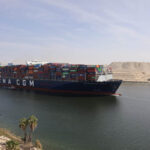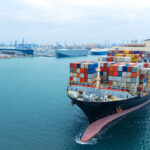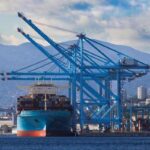IMO's new CO2 rules to "disproportionately" affect reefer transport

Several large shipping organizations including ICS, World Shipping Council and Intertanko are urging the International Maritime Organization (IMO) to change the upcoming CII index, according to Shipping Watch.
The CII index, which measures a ship's efficiency when it sails, can be affected by various things such as the power generated to keep temperatures low when transporting refrigerated foods or gas.
If a ship needs to use power and thus fuel to keep temperatures down, efficiency will also drop causing the CO2 accounts to look poor in comparison.
The shipping companies find this to be unfair, showing documents submitted ahead of the IMO's meeting in the Marine Environment Protection Committee, MEPC, set to take place in June.
Right now, preliminary meetings are being held when all documents submitted are reviewed and the agenda refined.
Other shipping companies, Bimco and Lloyd's Register have all said that the calculation method used to determine the CII score encourages companies to sail ballast water voyages as this might improve the overall score.
Another point of contention is that the sanctions for not complying with the regulations are minuscule.
"The energy consumption also varies significantly demanding on whether the cargo needs to be chilled or frozen, the length of the voyage, time in port, and the ambient temperature the ship is operating in since hotter ambient temperatures and longer voyages require higher energy demand," states the document.
According to the shipping companies, electricity consumption for cooling aboard a 4,300 teu container vessel with 1,121 plugs for reefer containers could represent up to 51.5 percent of the total consumption. Aboard a 23,000 teu vessel, 2,024 plugs for reefers can account for 70 percent of consumption.
"The issues highlighted in this document illustrate a serious problem that certain countries and ships will face absent a defined and accepted mechanism for accounting for energy consumed to refrigerate cargoes that cannot be transported or traded without refrigeration."
"Simply put, when carrying refrigerated cargo, the ship is not less efficient, the ship is simply carrying cargo that requires significant additional energy to transport," states the document.
Intertanko puts forward a similar argument saying: "The same VLGC (Very Large Gas Carrier) carrying Propane (below -42°C) will need more energy, i.e. fuel consumption for cooling the cargo than when carrying Butane (some -1°C)."







































